10 Reasons Why You See More Arguments On Facebook Nowadays
Facebook is a Social Media giant. It's been around long enough that we have generations who have never gone without it, while still being new enough that older generations are still sporadically experimenting with it and popping up in unrelated comment threads wishing their nephew a Happy Birthday.
With Facebook becoming a hub, entertainment center, public forum, and political hotspot it is no surprise that there is friction. I looked into exactly why this year we have seen more of this sort of conflict in an effort to shine some light on our own engagement with Facebook.
You may be guilty of more than one of these, but that's okay! We are all going to have to work a bit at a time to keep the platform healthy. So, to start, let's find out what the problems are...

Here are the 10 reasons why the number of arguments on Facebook is increasing every day.
1 . You’re Using Facebook More than you should!
Even if the rate of irate comments hadn’t increased overall (Spoilers, it has!) then one reason the toxicity is more apparent is the simple increase in time that we have all spent on the site. Attributed to the COVID outbreak this Statistica graph shows how Facebook still dominates our social media time, even more so than Tik Tok which is the new and flashy social for most younger people (As well as taking a surprising hold with the over 35's for some reason).
The important thing to note here is that even at its peak Tik Tok was still not as popular as Facebook at its lowest user count. This goes to show just how much hold Facebook has over newcomers to the social media scene. As we’ll see later, however, it isn’t just the youngsters getting riled up that’s causing the Facebook friction…
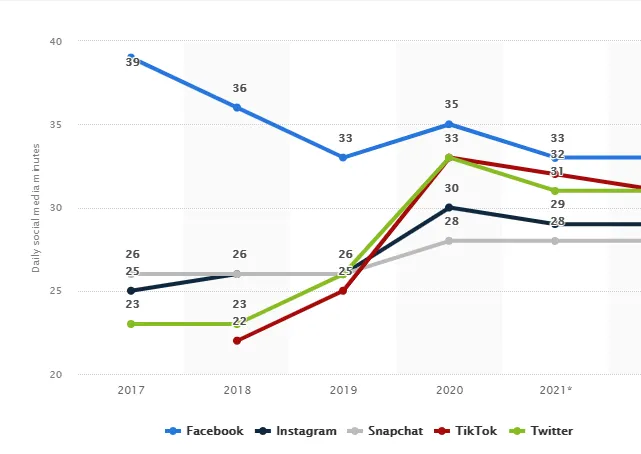
2. You’re Between 12 and 34 Years Old
Findings from Edison Research have shown that 32 percent of people in that age group use Facebook the most compared to other social media. With an increase in the global population on Facebook, and a huge proportion of the ages being 12 – 34, there can be some quite interesting analysis.
For example, the differences in people around 12 and those around 34 go without stating, the range isn’t just large but it is placed in such a way it covers 3 generations. It includes only 22 years of time and yet covers pre-teens, teens, young adults, and adults all the same. This is a volatile mix of cultures and ideological differences as education, media, and Facebook itself address these groups vastly differently.
The way these groups approach each other is vital too. Even the Court of Law respects "Age Bias" as a category worth accounting for, proving exactly how fundamental this issue is. With our psychology constantly subconsciously distrusting those much younger or older than us it is no surprise that Facebook is a catalyst for conflict.
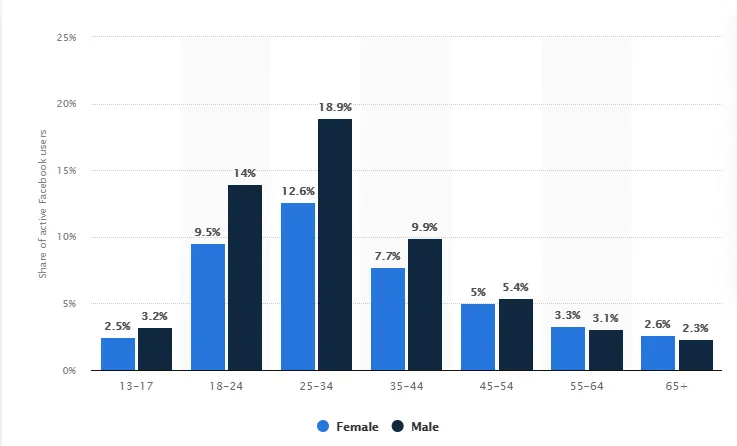
3. Internet Anonymity Increases Aggression
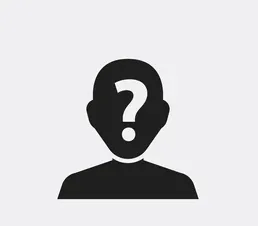
or even someone you don't
This one is a term that a lot of readers will be familiar with, especially the idea behind it, and you might even feel guilty about it! (That’s okay). On the internet, the only names and faces the public sees are the ones you outwardly put up. While hacking certainly exists and can mine more data, in general, it’s very much customer-based how much we give Facebook to work with. This has led to Facebook becoming a place where strangers can connect and comment on the same content from any country behind the safety of an internet version of themselves. Anonymity is a factor in everyone’s online life no matter how open you personally are. It is a simple concept that we are more receptive to aggression, conflict, and snideness when online and not having to face that situation in person. The psychodynamics of social networking by Aaron Balick sums it up: “You’re much more likely to throw outrage and anger, particularly if you have an anonymized account”
4. You’ve Seen Too Many Echo-chamber Results Talk About Politics
Even people who don’t know these groups exist are affected
The term "Echo-chamber" refers to spaces online where people meet to share posts and content. However, unlike public spaces, Echo Chambers rely on private corners of things like Facebook or Reddit to meet. This in itself is not inherently an issue, but the problems arise when these private gatherings stagnate and lack the diversity public spaces offer. Now, I’m not against a little wholesome community support, but these groups will be very specific and ordinarily very prejudiced.
For example, a group that outright bans a certain kind of person, or only allows proven voters of a certain political party. You can see how this creates the term “Echo-chamber.” These people spend so much time on Facebook *thinking* they’re on Social Media when in fact they’re just on their own isolated island of very particular views. They aren’t harming anyone there of course, but the problem is that this political polarization makes them then unable to see “real” Facebook, public Facebook, without absolutely losing their mind when someone doesn’t know what their Echo-Chamber go over every week.
We will see later how humans inherently believe what we are told, especially if we are constantly fed that information. This quirk of psychology makes Echo Chambers very, very dangerous.
What is Polarisation on Facebook?
Political polarization, in fact, polarisation about every topic, is a huge part of online life. The internet encourages people to have one view or another as people treat each "side" like an army. The word Polarisation refers to any situation in which there are only 2 distinct choices, which are polar opposites.
Magnets are the prime example, but the phrase is used for non-scientific endeavors too. On Facebook, polarisation can be seen in posts and groups and comment threads where there is a pre-established set of opinions all the users are expecting to see.
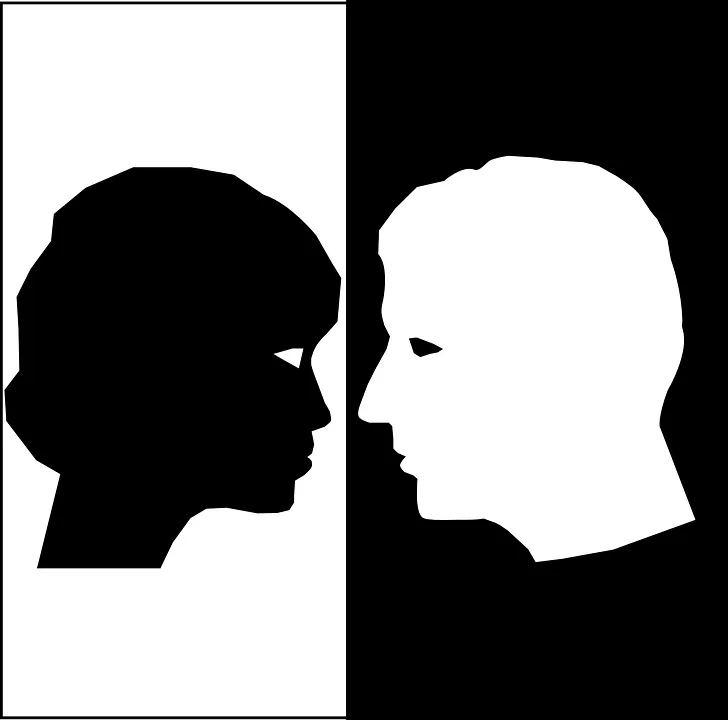
For example, if I see a post about US Politics I am certain to encounter a Republican and a Democrat crowd. Since these are already distinct ideas in the user's minds, the groups become polarised. It becomes very hard, or impossible, for people to see an opinion that does not fit either of those groups.
The fact that opinions are held like Ultimatums leads to people feeling there is no sensible middle-ground. These False Dichotomies are everywhere on the Internet; if you don't think Capitalism works in its current form you're a Communist, if you think Facebook stores too much personal data you're a conspiracy theorist, etc.
In reality, these views can actually be perfectly validly held together, simultaneously, it's just that many people online enforce this "With me or against me" mentality that polarises themselves and everyone around them.
Even people who don’t know these groups exist are affected, even you and I are! Because comments and posts are saturated with a collection of these people, and that in turn polarises us. When all the comments on a post are either hate or unconditional devotion it can be hard to argue for a middle ground. Facebook becomes the battleground for these groups, and their private groups are their barracks.
5. Stress Levels on Facebook Follow Exponential Growth
Anger in general is something we tend to describe as “building up”
Between the polarisation, the engrossment of time, the commitment to the platform and the freedom of anonymity Facebook manage to draw you in gradually.
However, the difference between your 30 minutes of Facebook being a chill walk on the web or a fight-for-your-life sprint past the denizens of the deep is a matter of this mood of conflict exponentially growing. Anger in general is something we tend to describe as “building up” or we may say someone has “pent-up” energy or anger or even rage.
Well, according to an interview ScienceFocus performed there is credibility to that assessment and the connection I made to Facebook. Our friend examining psychodynamics on Social Media, Aaron Balick, made the statement that “You could say that people are chronically wound up.”
We are constantly aware, even if subconsciously, of Facebook and the conversations going on there; the stupid political views we’re missing, the friends posting MLMs again, all of it. The more time we spend on Facebook, the more this stress builds and the faster it climbs up out of our Subconscious. This becomes a kindling of sorts, just waiting for a spark…
6. There Are People Online Deliberately Causing Arguments
it’s no wonder that Facebook has so much more of this raw emotion and anger than ever before.
Of course, there are people who just want to watch the world burn. They see that kindling and think it's fun to start the fire. Baiting is a hot topic on the internet what with people’s entertainment coming more and more from Facebook over the COVID Lockdowns.
One way people found their fun is a cheap and dirty thing called Baiting. I could write a whole article on the cursed thing, but let’s focus on the basics of how it causes more arguments than entertainment.
Baiting itself is what it sounds like. A Facebook user will go to a post and comment something…well, let’s just say they know which buttons to press. Perhaps it’s a rant about Microchips in the Vaccine, perhaps it’s simply “Orange man bad”, perhaps it’s just an image with no text of an opposing political figure or celebrity depending on context.
All these things aren’t done to make any actual point or show any real disagreement, they are done purely for the aftermath. These people with enough time and energy to expend on Baiting get a sick joy out of seeing others squabble and knowing in their hearts that they are the cause.
Baiting is a superiority complex at its core, where the Baiter gets off on knowing that they know the *real* situation while others argue over the politics, or extremism, or whatever the bait was about.
It’s the internet equivalent of spiking someone’s tires and then shouting, “It’s just a prank bro!”. Very similarly: A “harmless prank” is never harmless and the prankster is always the one everyone is judging and disagreeing with.
When people are out there deliberately causing arguments because it’s the only way they can feel good about themselves it’s no wonder that Facebook has so much more of this raw emotion and anger than ever before.
7. You Have A Facebook Addiction You Can’t Kick
if it does start to wear on you, you can always give yourself an excuse to put it down for a week.
With Facebook and its users forming this unsightly beast at times, it’s a wonder any of us stay on the platform at all. That’s the kicker, there’s enough victory and wholesomeness and positivity mixed in to keep us hooked. The scary thing is that even if there *wasn’t*…we’d stay anyway.
Facebook Addiction is a very real phenomenon in that everyone with an Addictive personality can find such things the catalyst for their addiction. Using Facebook as a source of self-esteem boosting or procrastination can be a slippery slope to it affecting your daily life.
Facebooks constant refresh, unlimited scrolling, instant commenting and replying, and the fact hundreds of people can react to the content in seconds all combine to make what could be called a Gameplay Loop. It's not so different from a game to some people who spend so much time there.
A study by the Stanford and New York Universities that paid students to not use Facebook for a week found this statement in a report to the New York Times: “it was kind of nice to have an excuse to deactivate and see what happened”.
This is a man who can see and acknowledge the negative effects of Facebook, even finding the payment not an incentive in itself but merely an “excuse” to put Facebook away. There’s no reason any of us couldn’t uninstall it all right now. We could do that.
But we don’t, because maybe like the student here we don’t have our excuses and it’s easier to stay in the loop than break it for “no reason”. Really, the negative effects of Facebook should be enough when they’re getting to us for us to say, “Enough is enough.” So remember that while Facebook isn’t some devilish place, if it does start to wear on you, you can always give yourself an excuse to put it down for a week.
8. We Believe What We See
Even if we know something is sugar, we can be convinced it’s Cyanide with nothing more than a label
It’s a simple fact that we all, even without wanting to, have a tendency to believe what we see. In an age of Photoshop, Baiting, and downright misinformation, however, that approach is causing more and more problems.
There’s an idea that is commonly talked about: Normalisation. If we see an opinion enough, no matter how extreme, it becomes part of our expected spectrum of opinions, pushing the border further and further.
This can be excellent and break down previous restrictions such as Gay Marriage becoming legalized and normalized. However, it can also result in us all learning to slowly accept, to normalize, extreme views on almost everything.
While this is a key factor, I personally think there’s a deeper and slightly different angle that this comes in from on Facebook. It harkens back to my early days in Sixth Form doing AS-Level psychology, but let’s not rely on my memory of that, eh? Instead, the same sentiment is found in The Sympathetic Magical Law of Similarity, Nominal Realism, and Neglect of Negatives in Response to Negative Labels by Paul Rozin.
Rozin outlines truth, lies, and misinformation or misinterpretation thoroughly here. The base idea is that we as humans tend to believe what we see. We have no reason to doubt information we are visually given right into our own eyes (Which we tend to trust above all else!).
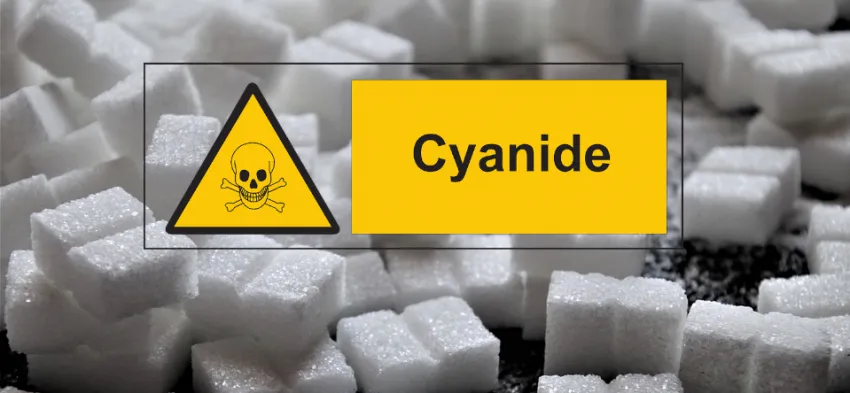
He alludes to an experiment with Sugar where simple white sugar was labeled as Cyanide. Despite the subjects placing the sugar in the bottle themselves…well, you can guess I’m sure. Hardly anyone took the sugar from the “Cyanide” bottle despite bottling the sugar themselves. Now imagine all the information we see on Facebook is in bottles. These can be groups, celebrities, friends, or even the topics themselves. How we see that bottle, the current impression, makes all the difference. Even if we know something is sugar, we can be convinced it’s Cyanide with nothing more than a label. This psychological flaw, combined with the misgivings of Facebook and the work of Echo-chambers and Baiters, makes Facebook a time bomb of frustration and distrust whenever any of these bottles are opened.
9. You Have Too Many Facebook Friends!
Facebook psychology can cause real detriment to our aggression levels and cause arguments online.
We all know Facebook friends aren’t *real* friends. At least, not all of them. That’s not to say people you only know online can’t be genuine friends, some of the people I enjoy talking with most and feel comfortable with I don’t even know the names of because we met on things like Twitch or Discord.
People whose names I only know as Shark or Too-Lazy or some other moniker. With this pressure taken off and Facebook friends not being something we need to make time for or stress over, some people end up with thousands or even into the 10’s of thousands. I am honestly still processing that; I have under 500 and follow about a quarter of them. But I digress.
The issue is that when this many people are linked in this way, regardless of what meaning we attribute that “Friendship”, the number itself can be a marker for more bombastic and extreme behavior online. People viewing that number as a mark of pride, or an audience to perform to, will often fit themselves into that role they have created.

A journal published with research from Western Illinois University shows a correlation between certain narcissistic behavior and the number of friends students have on Facebook.
The full journal is linked as to not disservice a huge endeavor like that, but essentially the study breaks down behaviors into categories that can then be referenced across to Facebook behavior. This means that regardless of what we might think of Facebook friends being real or not, the number matters.
Of course, this is a correlation, not causation and so I am certain there are people who care, in no uncertain terms, about their friend count while also being perfectly nice people! It is simply another way in which Facebook psychology can cause real detriment to our aggression levels and cause arguments online.
10. You’re A Victim Of All These Systems
The final reason you might be seeing more aggression on Facebook is that you are essentially a victim of all these effects we have covered. Maybe you never even considered Baiters existed (Why would they in a sane world?), or maybe you never took the time to find an “excuse” to leave Facebook for just a week and see the change (If any, of course). Maybe you’re even guilty of some of the behaviors here, which is completely fine! Just remember these factors when you see the friction online and remind yourself that you are more than just your Facebook.
"What's on your mind?"
After everything we’ve spoken about today, it would be easy to assume I hate Facebook in all its forms, but really this is just the expected outcome of looking into argumentative psychology online. I find Facebook has its uses, has its positives, has community and passion, and creativity.
The trick is learning when that all ends and, as I hope this article did, find out *why* such a place can turn so toxic. I’ve been in more Facebook arguments than I care to admit, but it’s not for joy or entertainment for me.
I have my own drives that Facebook uses in all the ways we have spoken of here, and I suspect so do you. We all have some work to do to make Facebook the least toxic it can be. So, let’s get started and really make this world a better place to live.
Opinions and Perspectives
I find it fascinating how the article points out that even the 12-34 age range covers three different generations. No wonder there's so much conflict when we're all coming from such different perspectives!
The echo chamber effect is real. I've noticed my own feed becoming increasingly one-sided over time and I have to make a conscious effort to diversify my views.
Anyone else guilty of spending way too much time on Facebook during lockdown? The statistics about increased usage really hit home for me.
That's so true about the stress levels building up exponentially. I often find myself getting more and more worked up the longer I scroll through my feed.
I disagree with the point about anonymity on Facebook. Most people use their real names and photos, unlike platforms like Reddit or Twitter. The problem is people just don't care about being civil anymore.
Actually I think the real names make it worse. When people know who you are, arguments can get really personal really fast.
The part about believing what we see is scary accurate. I've caught myself believing headlines without fact-checking just because they aligned with my existing views.
I never thought about baiting before reading this, but now I can spot it everywhere in comment sections. It's actually changed how I interact with provocative comments.
The addiction aspect really resonates with me. I've tried taking breaks but always find myself coming back, even when I know it's not good for my mental health.
Interesting how they mentioned the relationship between friend count and narcissistic behavior. Makes me want to clean up my friends list.
I've noticed the polarization getting worse lately. It seems like every post turns into a political argument somehow.
The sugar/cyanide experiment mentioned in the article is mind-blowing. Really shows how easily we can be manipulated by labels.
I feel personally called out by the section about Facebook addiction! Anyone else catch themselves mindlessly scrolling multiple times a day?
What struck me most was how these factors all feed into each other. The echo chambers reinforce our beliefs, which increases polarization, which leads to more arguments.
You're definitely onto something there. It's like a vicious cycle that's hard to break out of.
The age bias point is particularly relevant. I see so much generational conflict in comment sections, especially between boomers and millennials.



